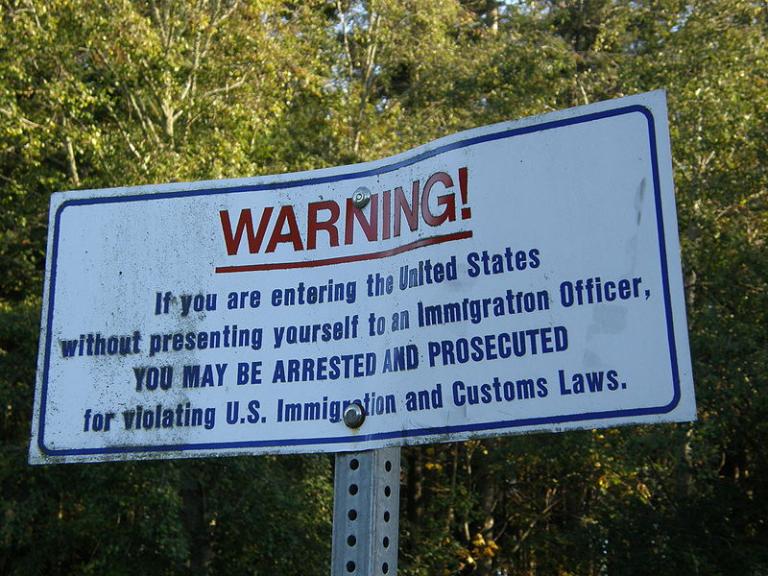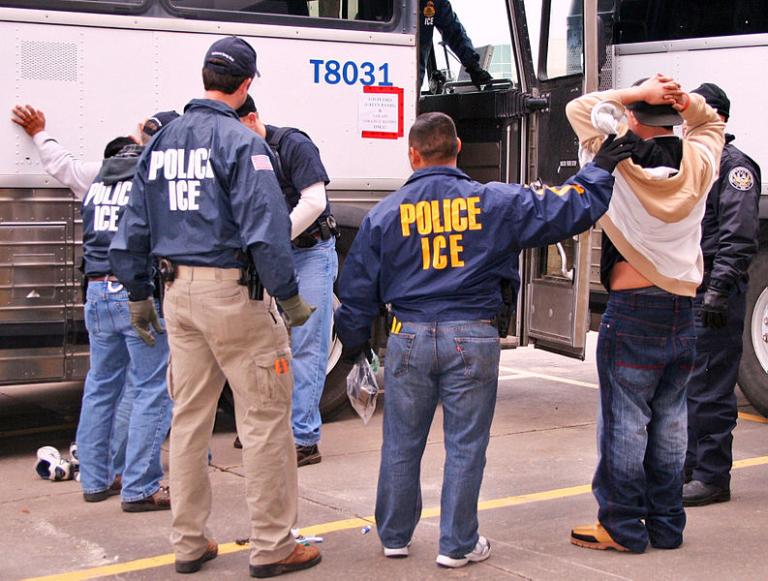
Why can’t we solve the issue of illegal immigration?
First, genuine policy disagreements.
There are real policy disputes about the level of legal immigration, and the type of immigration we should have. Silicon Valley wants high levels of all kinds of immigration — skilled workers to fill their offices cheaply during the day, and unskilled workers to clean them cheaply at night. Hispanic activists want high levels of unskilled immigration to bring in family, neighbors, and compatriots, and to increase their political power. Some employers are perfectly happy with illegal immigration, as long as they can hire them with false IDs, and know that they’ll accept poorer working conditions than Americans or legal immigrants would. Some people imagine themselves to be humanitarian because, if someone’s going to go through all the effort to come illegally, then they clearly by definition have a good reason to have done so, and shouldn’t be sent back. Some are genuinely convinced that immigrants are a better class of people than Americans (harder workers, try harder in school, etc.). And then there are the libertarians, who reject enforcement measures on the principle of unwarranted government intrusion, because it’s a violation of our rights to have to prove our identity, or something.
In contrast, of course, are those who object to high levels of immigration for multiple reasons — its impact on the American labor market, the cost of welfare service provision for low-wage workers, the risk to American unity of large numbers of unassimilated immigrants with different cultural values, and, yes, the transformation of the American population, in terms of its ethnic origin mix, the skin color of its people, and their tribal identity.
All of which mean that a compromise of “amnesty in exchange for future enforcement” has an array of people who object to enforcement, and who want to add increases in new immigrants to the bargain — e.g., the 2006 proposal with its “Blue Card” concept of allowing in as many workers as employers wanted to hire, or the 2013 plan to give immediate legalization to illegal immigrants while claiming that they were not “cutting in line” by also clearing the whole green card backlog with massive numbers of new immigration slots — as well as those who, on the other hand, really want the amnesty to be as narrowly-tailored as possible.
Still, it’s in the nature of politics that one must compromise, right?
But there’s a larger issue: lack of trust, on both sides.
Those who object, in general, to open immigration and amnesties, but are willing to accept it in limited circumstances, do not trust the government — the administration, the bureaucracy, as run by whichever party — to implement enforcement measures in the context of a law which provides for immediate legalization. “First, show us that we can trust you to enforce the law,” they say — and quite reasonably so. How can you expect governmental bodies which have repeatedly rejected immigration enforcement to begin doing so?
Those who support amnesty, on the other hand, say, “how can we accept enforcement measures before we have amnesty? Otherwise, you’ll be deporting the very people you claim you’re willing to grant amnesty to.” And they, in turn, reject assurances of “trust us, in the meantime, we’ll only deport those who don’t deserve to stay” or “E-Verify implementation won’t affect your guys, because they can just stay with their current employer.”
This is the problem that’s much harder to fix.
It’s one thing to go to your constituents and say, “look, we bargained hard, and got the best deal we could. Sure, we had to accept amnesty/enforcement, but that’s a small price to pay for the benefit of enforcement/amnesty.” It’s quite another to make a bargain, and fear that it’ll blow up in your face as the other side fails to keep their side of the agreement.
Now, for the poll.
And, no, this isn’t really a poll, in which you click on a response and then view results. I’m not sure how to set that up in WordPress. This is more of a specific question for discussion.
But there are a lot of potential trades being discussed. Among the following, which do you think are (a) realistic and (b) acceptable to you, personally, as compromises to enact an amnesty for those immigrants brought here illegally as minors?
- The RAISE Act (skills-based immigration, elimination of chain migration, reduction in total numbers of immigrants annually).
- Ending chain migration, in isolation (that is, immigrants can’t sponsor parents, siblings, or adults children, only their minor children). This is Tom Cotton’s proposal.
- The Wall.
- E-Verify.
- Overstay visa tracking.
- Greater budget and political will to police the border and deport internally.
- Something else.
Or do you stand with the pro-DACA lobby that says they will not accept any concessions at all? The Daily Beast reports,
Democrats have said they will not engage in talks that would effectively turn DACA recipients into bargaining chips.
“First, you cannot reward an immoral act with a concession. Who knows what Trump will do next?” said Ron Klain, a longtime Democratic operative who is a forceful immigration reform advocate. “Second, there’s no legitimate argument for denying status to these people here, not by choice, who have been law-abiding…”
Me, I’m not impressed with border security promises, especially when it’s not a matter of infrastructure but more agents, drones, etc. After all, if illegal entrants are caught, then released to await a hearing, it does little good to “catch” them in the first place; and no border security is a remedy for visa overstays. Besides which, of all the actions, border patrol policies and spending is pretty easy to drop as soon as you don’t need to keep a promise any longer.
I’m leaning toward the Cotton proposal — no more chain migration. Neither these DACA recipients, nor any other immigrants, can sponsor their parents or siblings.
But is it enough? I am not going to try to dig out facts and figures but I find it probable that the wave of teen migrants from Central America were motivated by Obama’s DACA declaration rather than a sudden worsening in conditions back home. I do think it’s foolish to imagine that immigration is only a matter of “push factors” (that is, financial desparation) that we have no control over — there are definite “pull factors” based on how potential immigrants assess the situation, and, especially in 2017, they have the ability to ask, and get answers to, questions like, “how easy will it be to get work and feed my family/send money home? how great are the chances of deportation?” It’s simply not the case (or very seldom, anyway) that immigrants arrive without any connections — they’d flounder, they wouldn’t venture to make the trip, if they had no resources and knew no one to help them get settled.
So what do you think?
[Note: I drafted this here and there over the last two days. My current suspicion is that the Trump’s signaling that his deadline wasn’t serious will mean that anti-amnesty Republicans will not have the numbers to force any concessions and Democrats will get the prize of a generous “clean DACA” bill, with the only suspense being over such items as, how many convictions they are allowed to have, and how few years of residence, and with what age cut-off. But I’m going to put this out there for reader comment anyway.]
Image: yes, it’s the same boring wikimedia commons image as before.











